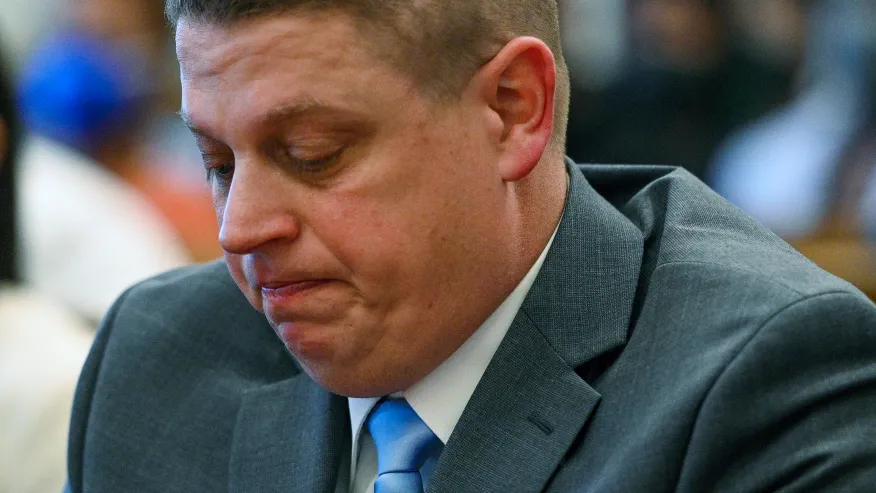In Jefferson City, Missouri, a white former Kansas City police officer named Eric DeValkenaere walked free from prison on Friday after Governor Mike Parson decided to commute his six-year sentence to parole. DeValkenaere had been convicted of involuntary manslaughter in the 2019 shooting of Cameron Lamb, a 26-year-old Black man, but the governor’s decision has sparked heated debate and strong reactions.
The case had drawn widespread attention, with Lamb’s name often mentioned during racial justice protests in Kansas City following George Floyd’s death in Minneapolis in 2020. Lamb’s family even met with then-President Donald Trump that year. The shooting happened as Lamb backed his truck into his garage. At his trial, prosecutors argued that police shouldn’t have been on Lamb’s property and accused them of staging the scene to make it look like Lamb was armed. DeValkenaere, however, testified that he believed Lamb had pointed a gun at another officer, prompting him to fire his weapon to protect his colleague.
The trial judge, Dale Youngs, ruled that the officers had no warrant or permission to be on Lamb’s property and criticized them for escalating a situation that had already calmed. DeValkenaere was convicted in 2021 and began serving his sentence after losing an appeal in October 2023.
Governor Parson’s decision to release DeValkenaere on parole came amid ongoing public outcry. While the governor didn’t issue a full pardon, he reduced the sentence to parole, meaning DeValkenaere must follow strict conditions, such as avoiding firearms and staying within Missouri unless given permission to travel. DeValkenaere’s supporters, including Jason Johnson of the Law Enforcement Legal Defense Fund, maintain his innocence and pledged to clear his name entirely.
For others, the decision feels like an injustice. Gwendolyn Grant, president of the Urban League of Greater Kansas City, described the move as a clear endorsement of systemic racism, saying it undermines the value of Black lives. Jackson County Prosecutor Jean Peters Baker also expressed frustration, emphasizing that no such mercy was extended to Cameron Lamb or his family.
Eric DeValkenaere’s wife, Sarah, had frequently taken to social media to rally support for his release. In one post, she shared how deeply she missed her husband and felt he was being unfairly punished for doing his job as a police officer.
This isn’t the first time Governor Parson has drawn attention for clemency decisions. As he prepares to leave office, Parson has granted clemency to more than 800 people—more than any Missouri governor since the 1940s. Many of these cases involved lower-level offenses, like drug or theft charges, but a few high-profile cases, such as DeValkenaere’s, have stood out.
Another notable decision involved Patty Prewitt, a 75-year-old woman who spent 40 years in prison for the 1984 killing of her husband, Bill Prewitt. Patty has always maintained her innocence, claiming a stranger broke into their home in Holden, Missouri, and shot her husband while he slept. She rejected a plea deal early on, and prosecutors argued she killed her husband for financial reasons, using testimony from former lovers to build their case. However, her supporters, including Georgetown University law students, found flaws in the evidence and argued that modern courts wouldn’t have allowed such testimony.
Both DeValkenaere and Prewitt were released quietly on Friday, with Missouri’s Department of Corrections confirming their freedom before Parson publicly announced the clemency decisions. The governor offered no detailed explanation for these decisions but had hinted in earlier interviews that he felt DeValkenaere didn’t belong in prison.
As the story unfolds, the clemency decisions have stirred emotions across Missouri, leaving many reflecting on what justice truly means and how it’s applied. For Cameron Lamb’s family and supporters, the governor’s actions feel like another painful chapter in a long fight for accountability and equality.





